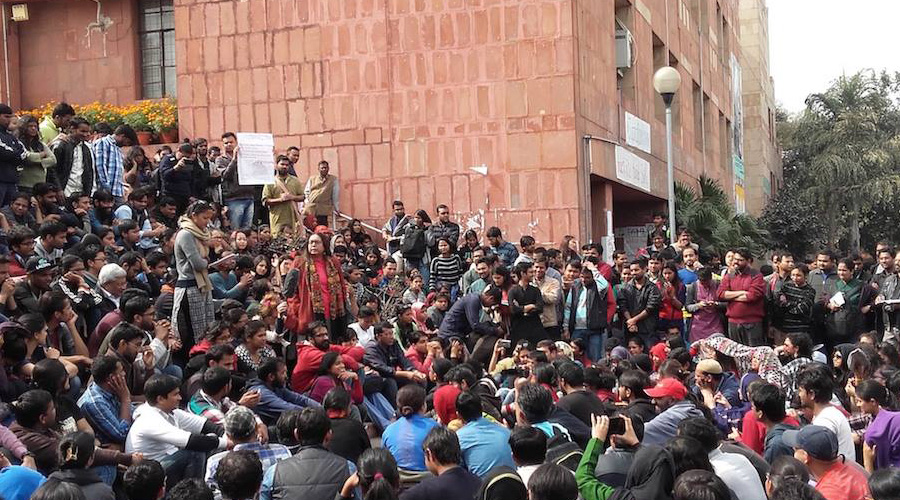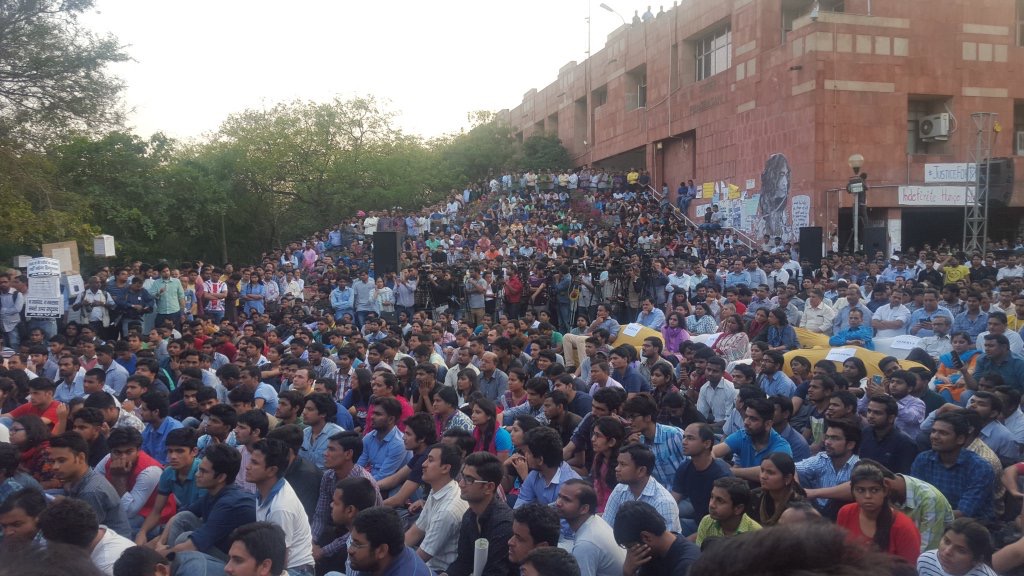A Historic day at JNU
On the morning of 15th March I got a call from a student of JNU. He asked me if I would be interested in screening the film at JNU? Without a pause I said yes. He said he would figure out and cut the phone. I forgot to ask his name.
I didn’t realise then that an unknown boy was going to change the destiny of this film.
On the 16th I got a call from him again. He said he had got the permission for the 18th March 5.30-8.30 PM from JNUSU. ‘How many students are you expecting?’ I asked him. ‘Sir, approximately 100. We will also get few friends from outside so say, 150’. He told me. ‘What’s the capacity of the auditorium?” ‘About 200…’ he took a pause and then told me ‘sir, more students want to come but they are scared of the faculty… but we will try to convince them… please don’t say no now…. its a matter of our prestige’. This put me in real dilemma. JNU was at the centre of national news. If we go, it may appear that we are trying to milk it. What if we go, and there aren’t enough students? What if it becomes political? What if they try to sabotage it? What if they write bad things about the film? What if it’s a ploy by those who the film exposes?
In testing moments, it’s the skeptic mind that takes over.
I called Anupam Kher. There was a pause when I broke the news and expressed my fears. Then he said something that I truly appreciated. He said ‘Our job is to make movies and show them, even if 10 students come we must show. In the end, we will get what we deserve’. He was the only person in the entire world, besides these unknown students, who was talking about showing the movie. So far I had only heard people telling me why I shouldn’t be showing it anywhere.
I quickly made the poster and tweeted it. Fully knowing there was no going back.
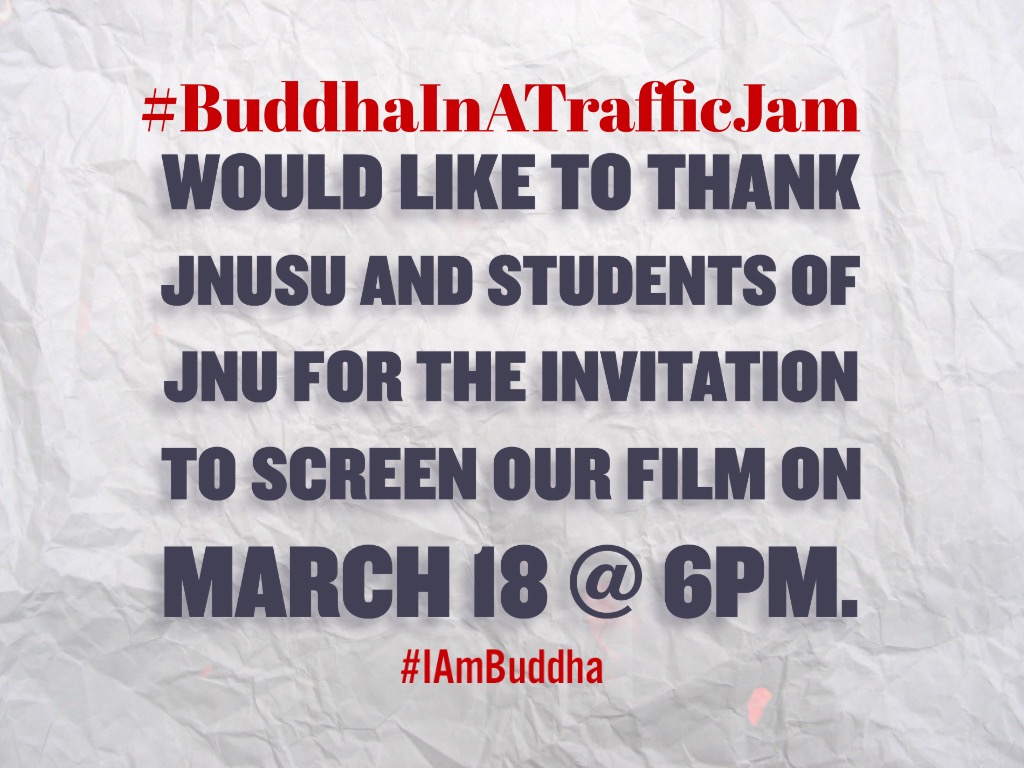
Students made some poster on their own which didn’t even spell the film’s name right.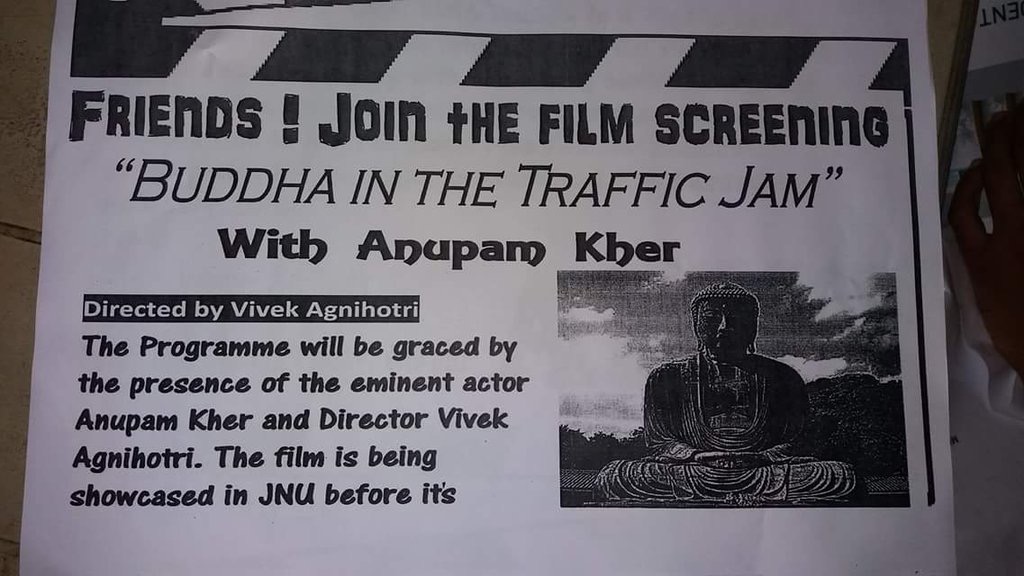
‘Buddha In A Traffic Jam’ was initiated with the students of Indian School of Business, Hyderabad – world’s top 10 B school. We had decided to tell a story that affects India. We found that more people have been killed in naxal movement than in Indo-Pak conflict. Naxalism, we realised, is our biggest threat. What worried me was how it made inroads in our universities and students were being used to further Maoist agenda.
The Film evolved. A lot of my life’s experiences went into it and what came out was a hard hitting, honest film on Naxal-NGO-Academia nexus. “Intellectual Terrorism’ became its central theme. It was not an easy film to watch.
Truth is always disturbing.
On the morning of 18th March when I reached Delhi, guarding the hard drive with the film’s copy, I had no idea what was in store. When the organising boys came to meet me at the hotel, they told me that the screening is going to be in open-air at the Admin bloc. “what?” I jumped. No filmmaker worth his salt would allow his film to be shown outdoors before the theatrical release. That too on bad projection, bad sound. That’s not what we work so hard for. The students informed me that the screening would begin at 6PM so that it gets over before 8 so we get half an hour for the Q&A. ‘But you can’t show the film before its dark and it’s not dark before 7Pm’ I told them. ‘But no-one will stay after 8.30 as the mess opens up at 8PM’ he informed me. ‘No way. I won’t allow to show my film in bright daylight’ I told them. “why can’t we do it an an auditorium?’ I asked them. ‘Because audi has a capacity of 200 and there will be at least 500-6oo students’.
Never in the life of this film had I imagined that 500 students would come to see it at JNU. Never in my life had I imagined that someday I will be forced to show my film open air in daylight. For everyone it was becoming an event. For me it was the future of the film. Inside me there was a conflict between a filmmaker and a man who wanted to tell the truth. My DA Naireeta knows how to cool me down. She reminded me that for the first time some people wanted to see this film. Not some… 5oo-600.
Life is about taking chances. And I took that chance.
I quickly wrote to Ira Bhaskar, inviting her, but she never came. Kher saab insisted that he wanted to go half an hour early just to walk around and interact with the students. So we left at 5PM to be there at 5.30.
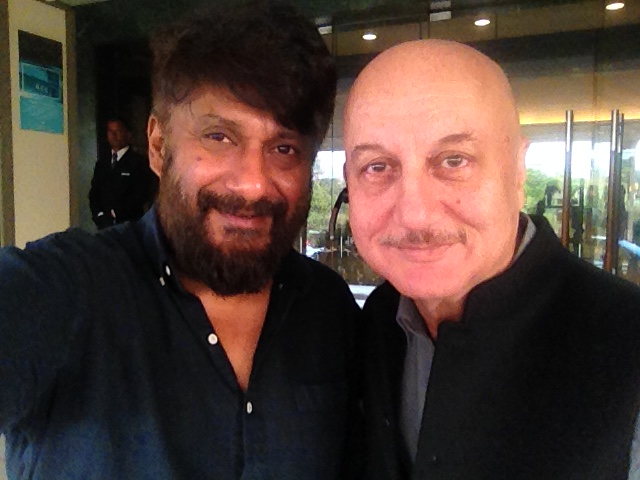
When we reached JNU and stepped out of the car, let alone walking and interacting with the students, there was no place to stand. Wherever one could see there were excited students.
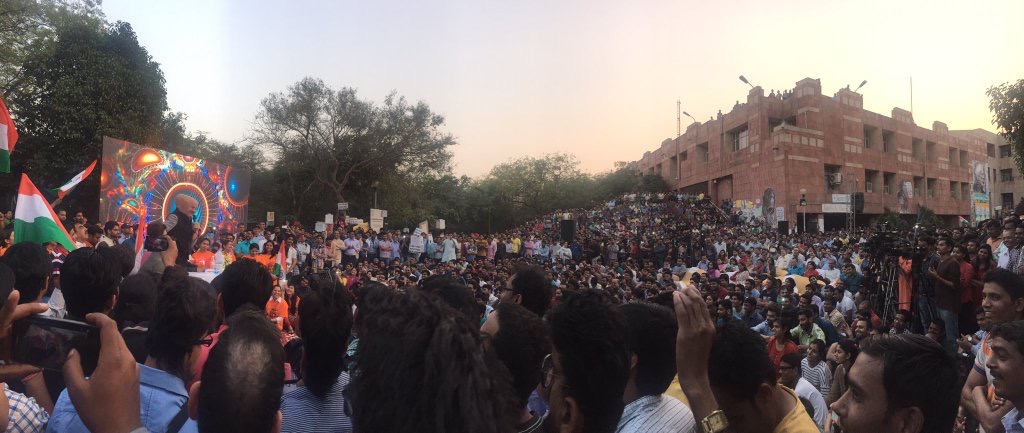
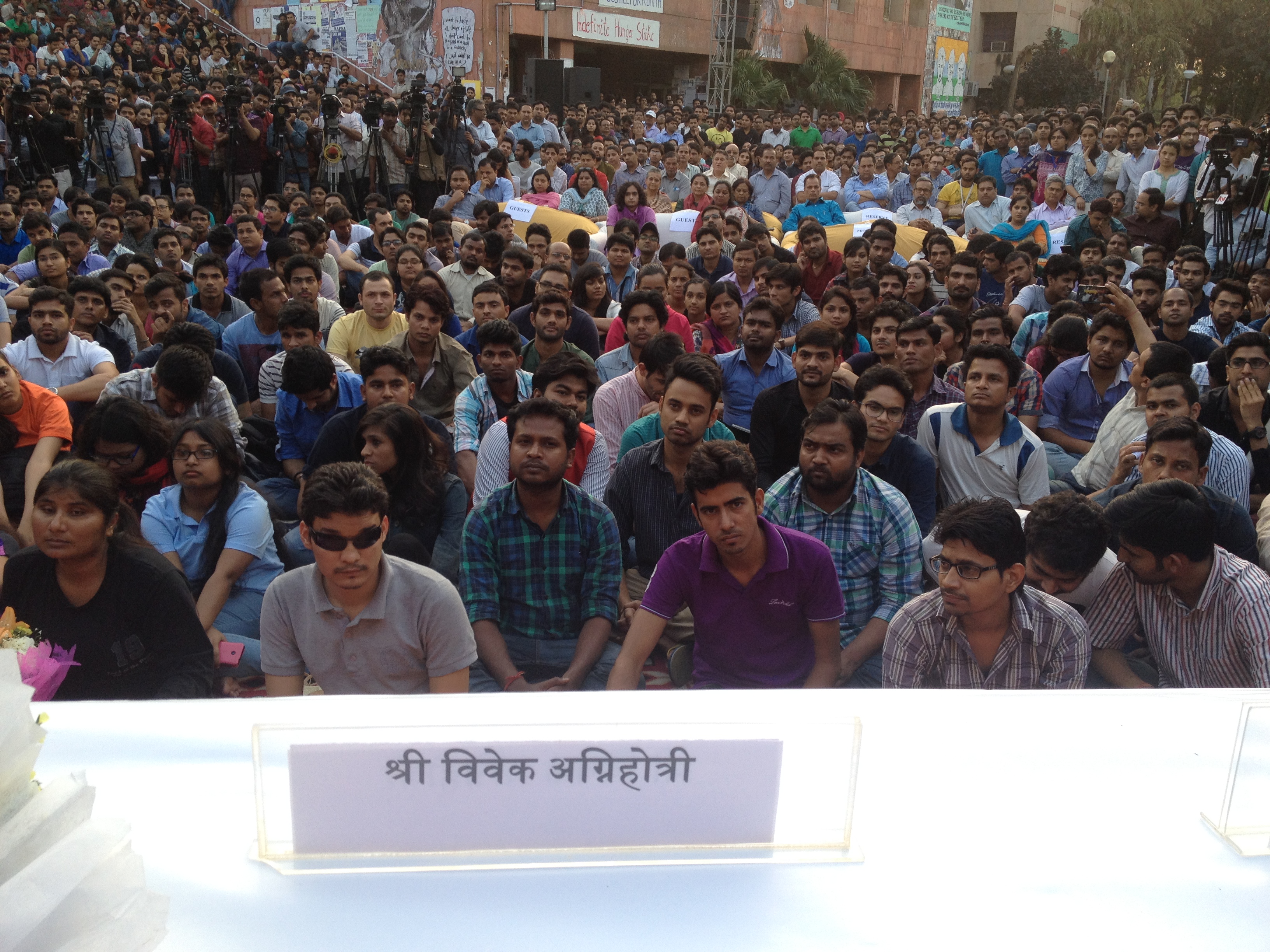
Kher saab’s desire to walk got crushed instantly by thousands of students shouting ‘Vande Matram’. This is not the JNU I had known. The cop in charge whispered ‘kam se kam 5 hazaar ladka hai…’ (There are at least 5k students). Students wouldn’t let the film begin until we spoke. As we reached the dias, someone announced my name. This was my life’s first impromptu speech. When I got up to speak, the entire JNU filled with chants of ‘Vande Mataram’. It was a historical moment. For a moment I was blank. Then some force took over me. As if someone else was speaking through me. This was, perhaps, the only time when I spoke without thinking. Straight from the heart. The speech went on to become the most viral speech ever, by a filmmaker. .
Rejection has an amazing quality. It gives you strength. And I tested it on that day.
While watching the film I was thinking who are these people who are against this film? Why were some faculty members not letting it screen? Who is this faculty? And how come they have such political power that they can run institutes at their whims? Are these educational institutes or political madrasas? Is the faculty Taliban and students Jehadi? Why is it that Barkha Dutt’s of the world did not even bother to cover this historical moment? Or they took an oath to cover only anti-national news?
A political scenario, which I believed to be true and made this film on, was slowly revealing itself. Conviction of thought is stronger than any other power.
The Film ended with a response which made standing ovation redundant. Next 2 hours we were hounded by an unruly media. In that stampede I ruptured my left shoulder muscle. As I was returning in my car, holding my left shoulder, some 100 students were taking out a victory march for Umar Khaled, who was released on bail. Victory march? Really?
That day my faith was reaffirmed that at JNU, students who love India outnumber students who want ‘Bharat ki barbadi’.
It’s a series of blogs where I share my struggle in releasing our movie ‘Buddha In A Traffic Jam’. With these blogs you will get first-hand insights into student politics, film politics, identity politics and the narrative politics of India.

